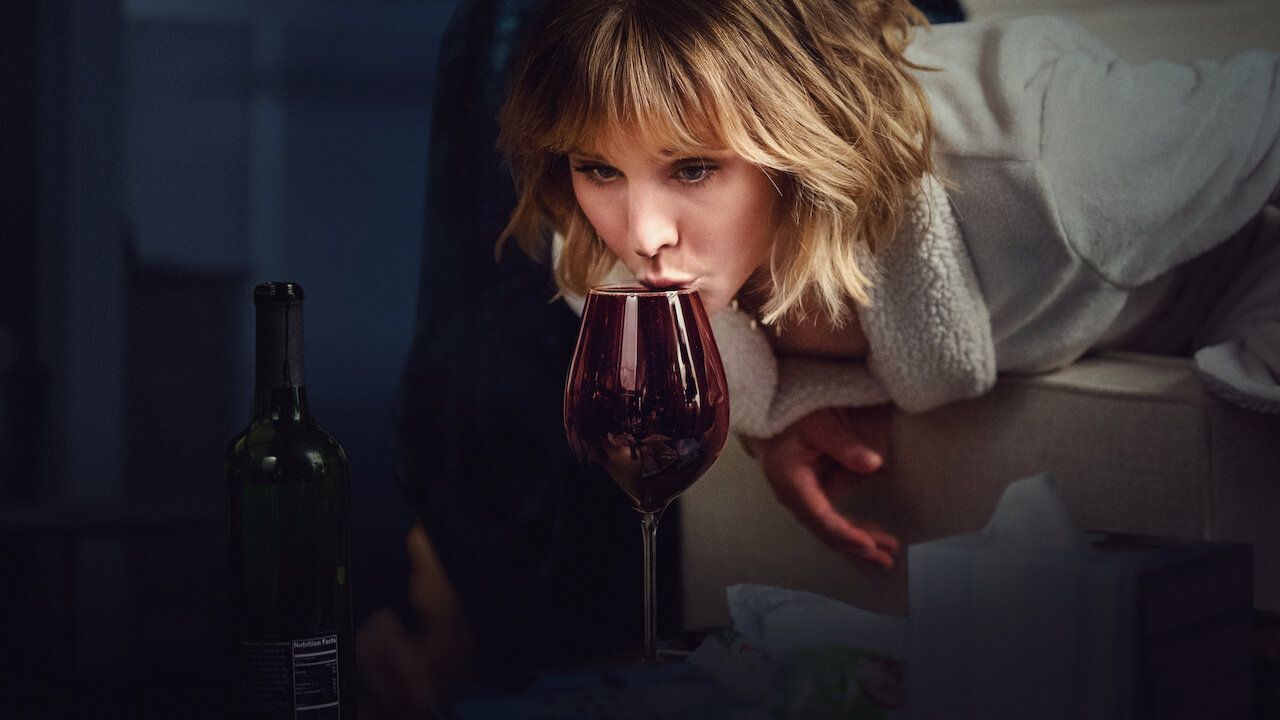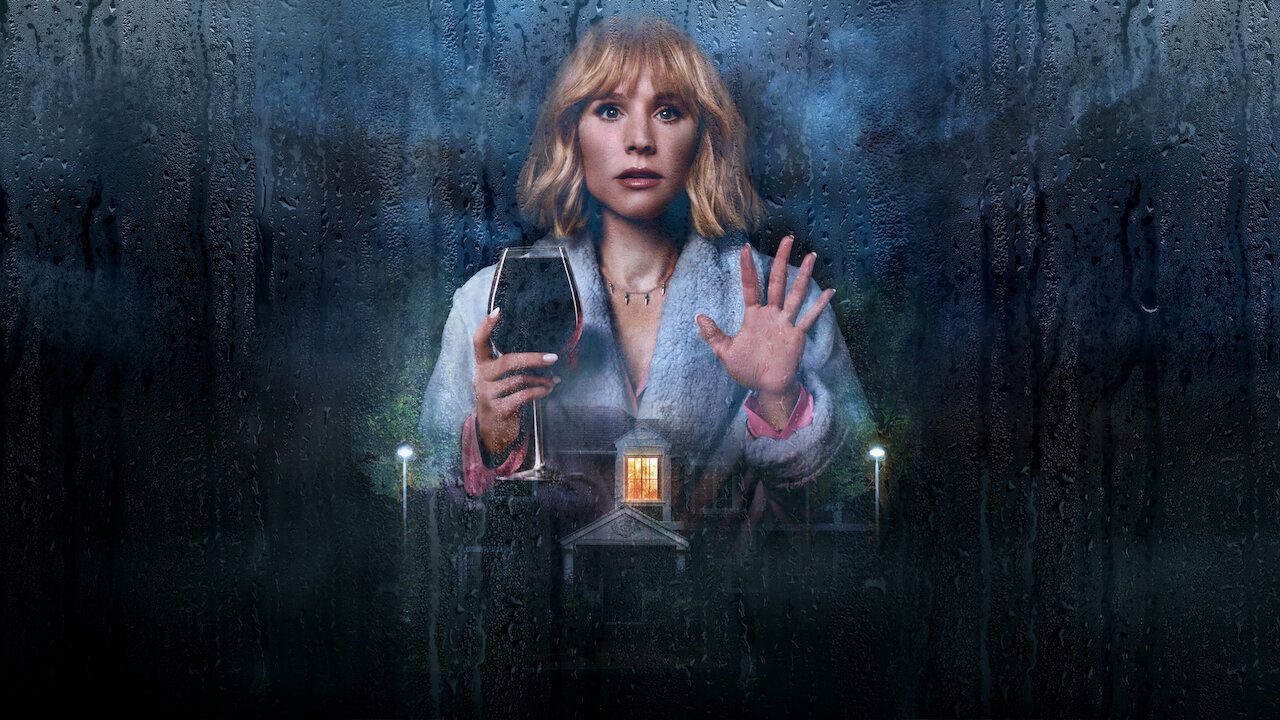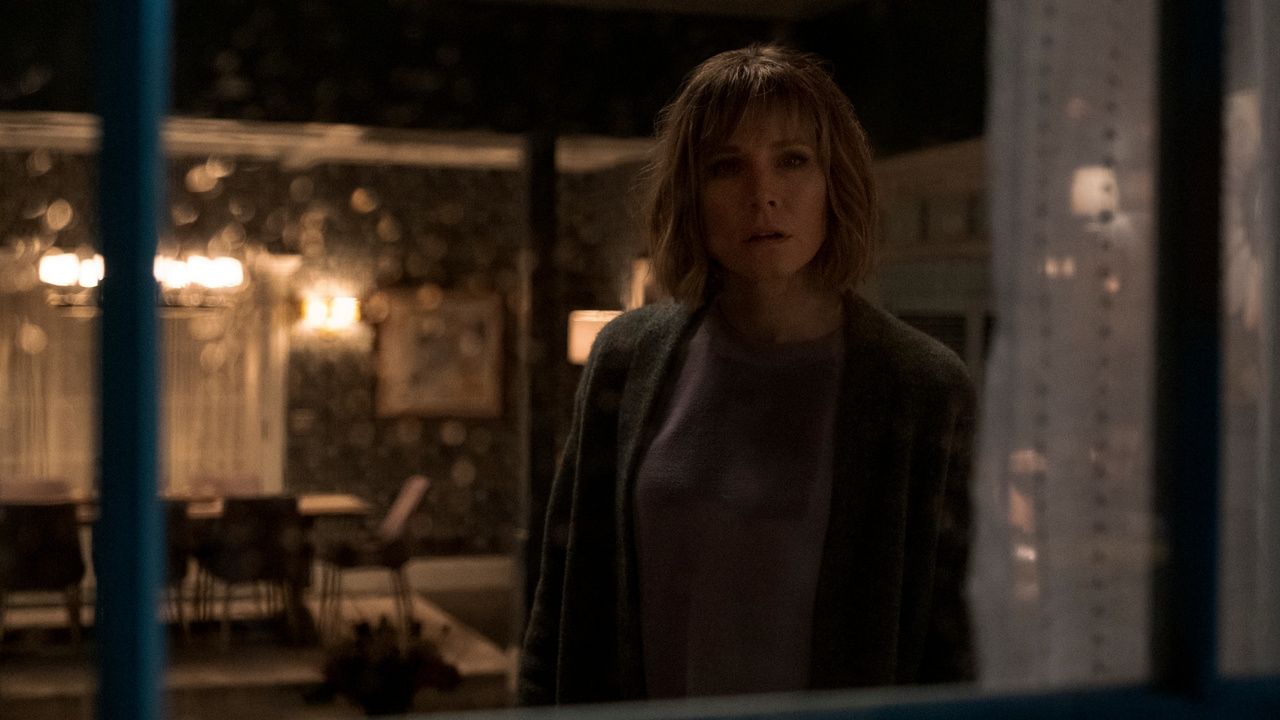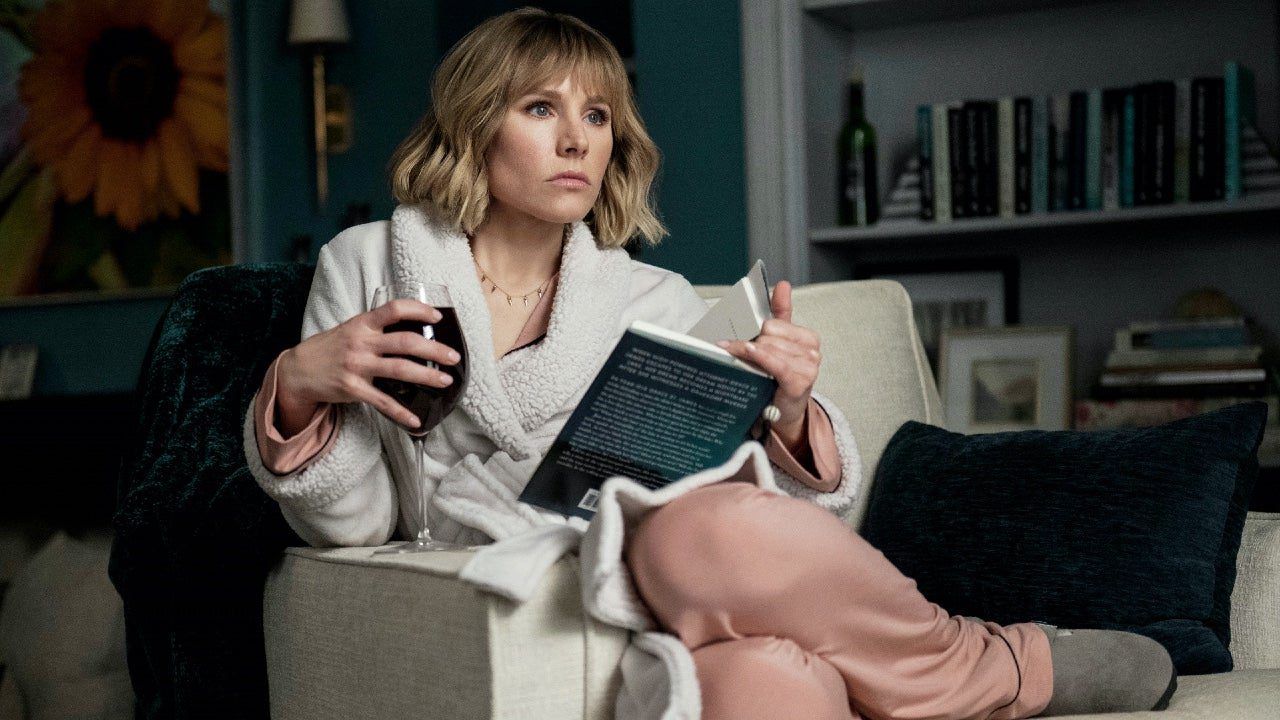Can a parody be too perfect? Not 'perfect' in the sense of a genuine cinematic masterpiece, but perfect in just how completely it mimics the very thing that it parodies so that it almost becomes indistinguishable from what it ridicules? If a film parodies tropes and clichés which have become tiresome and expected but does it incredibly well, is the parody itself banal? Where is this line drawn? These are a few of the questions a viewer might ask throughout the new Netflix series, The Woman in the House Across the Street From the Girl in the Window, or maybe even before they've finished reading the title.
The blatantly silly length of that title certainly hints at the show's ridiculousness, the same way that past titles with run-on sentences have pointed toward parody and dark comedy-- Dr. Strangelove or How I Learned to Stop Worrying and Love the Bomb, Fearless Vampire Killers or Pardon Me But Your Teeth Are in My Neck, or Borat Subsequent Moviefilm: Delivery of Prodigious Bribe to American Regime for Make Benefit Once Glorious Nation of Kazakhstan all come to mind. In a way, this is the winking nod to a viewer before entry, indicating that what one is about to see should not be taken so seriously.
One could shorten the title to The Woman in the Window when discussing it, but that's ironically the exact title of a Netflix thriller from 2021 with essentially the same plot; its main character, an agoraphobic woman, spies on her neighbors and witnesses a crime she then gets wrapped up in. Her name in that film, Anna, is even the same. Is that a coincidence, a rip-off, or a clever parody? Again, this series is so serious in its attempt to parody the genre, that the audience would never know which to believe.
This Is Definitely a Comedy
The immediate voiceover introduction in the series comes from star Kristen Bell and seems to also immediately let the audience in on the joke. She narrates with a pretty awful British accent, leaving the viewer to think (and not for the last time), "Seriously? Why?" After a minute or so, Bell's character Anna seamlessly mentions that "sometimes I speak with a British accent, even though I'm not British," and her dialect changes. This initiates the real art of the show-- it leads the viewer on and teases them with something completely stupid, and then slowly shows its hand in a 'JK' kind of way (or at least sometimes).
The Woman in the House Across the Street From the Girl in the Window is brimming with this kind of bait-and-switch. It tackles and masters nearly every dumb cliché in the Lifetime Original Movie and Hallmark Channel playbook, along with primetime cable mishaps and mystery-romance novel nonsense. There is a grief-stricken mother who drinks too much, and the ghost of her child she can't get used to; the attractive but enigmatic neighbor who has just moved in; the ridiculously expensive suburban house for someone who seems to have no money or job; the murder only she witnesses, and the bevy of people who don't believe her; the best friend who is always there for her and is 'worried about' her; the gossiping neighbors, the just-barely-softcore-enough-to-not-be-explicit sex scene, the dark flashbacks, and grizzled police detective, the idiotic twists, et cetera, ad infinitum. It's as if there was a massive checklist the creators went through in order to ensure that they've parodied every single trope in the mystery-drama, psychological-thriller toolkit.
The dialogue (especially in voiceover) accentuates this also, playing to the familiar language of the genre. There is the prerequisite scene wherein a character makes a discovery and says the word "bingo," except Anna does it three more times in the same scene, accentuating the stupidity of the whole scenario. There's the scene where she visits a loved one's grave at the cemetery and talks to the ground and the dialogue which wants to seem profound but is so patently not and riddled with clichés; Anna opines, "To get to the bottom of something, sometimes you have to remind yourself that if you don't risk anything, you risk everything, and the biggest risk you can take is to risk nothing, and if you risk nothing, what you're really doing is risking not getting to the bottom of something, and if you don't get to the bottom of something, you risk everything."
This is Definitely Not a Comedy
However, the series is so invested in its murder-mystery plot (which is, admittedly, the wellspring of its humor) that it can easily be taken seriously. In fact, several publications have reviewed and written about the series with an entirely straight face, never once commenting on the fact that it's supposed to be an absurd parody. "Brace yourselves to be on the edge of your seats throughout - this one's a real thinker," Akhila Suresh writes for the media-tech site Meaww, completely unironic when they continue to call it a "thriller mystery." David Kaplan, of Kaplan Versus Kaplan, writes, "The twists and turns from creators Hugh Davidson, Larry Dorf, and Rachel Ramras keep us guessing until the very end. What more can you ask from a mystery thriller?"
This is not to discredit these writers in any way; the point here is that The Woman in the House Across the Street From the Girl in the Window is so invested in adopting the trappings of the genres it spoofs that it becomes indistinguishable from those very genres. The cliffhanger endings, the tension between what is fantasy and what is reality, the romantic and sexual interests, the threat of danger-- these things are often taken and stylized extremely seriously. So it's jarring when there are sequences in which a handyman has worked to install a mailbox for several years, or Anna's art career is lauded and acclaimed even though she paints dentist-office-style pictures of flowers and owns the (fake) books You Too Can Be An Artist, You Also Can Be An Artist, and Anyone Can Be An Artist. If the plot is so deadly serious and Anna's emotional geography is explored to great degree, but the series is utterly silly and absurd in so many aspects, where are the stakes? Can you care about the characters of a parody? Does a parody's plot matter?
A History of Parody
These are difficult questions that go back to Andy Warhol and Pop Art, if not earlier. When Warhol painted cans of tomato soup, some people questioned where the actual Campbell's product (which cost roughly $1) began, and an artistic painting of the product (which sold for nearly $12 million) ended. What was the difference, and what made the latter art but the former disposable consumer scraps? What is the difference between a Lifetime Original Movie and a perfect parody of it? Will Ferrell and Kristen Wiig explored this concept several years ago in their utterly serious but terrible movie A Deadly Adoption, which literally aired on Lifetime. That movie has a 14% Tomatometer score on Rotten Tomatoes which, paradoxically, may prove that it was a success-- perhaps a film parodying bad films really should be bad itself.
If that's the case, then The Woman in the House Across the Street From the Girl in the Window succeeds in so many ways. Director Michael Lehman knows dark comedy exceptionally well, having created the classics Heathers, Meet the Applegates, and Airheads, which each satirize certain aspects of American culture in their own respective ways, and yet are all much more straight-faced than the average dark comedy. Heathers might be funny, but it never flat-out tells you that it's supposed to be, quite like this new Netflix series. Showrunners Hugh Davidson, Larry Dorf, and Rachel Ramras have a singular creative vision, something they've surely honed from their work together in The Groundlings and creating, writing, and starring in (as themselves) the underrated series Nobodies. Kristen Bell, also executive producing, combines the detached detective persona of Veronica Mars with the cynical self-destructiveness of early The Good Place seasons to create something entirely specific for the show. The combined efforts of everyone are practically visible on-screen, with this being a very deliberate show that knows what it wants to do.
Nonetheless, what it does is polarizing, perhaps explaining the nearly perfect 50/50 split in its reception. Some people will think the comedy gets in the way of the mystery; some people will think the mystery gets in the way of the comedy; others might think that the comedy is that there is no comedy. It's in this anti-comedy that The Woman in the House Across the Street From the Girl in the Window resides. It's a comedy show that's not too funny but actually wouldn't succeed if it were. It's perfect at what it does-- revealing the absurdities and stupidities of entire genres but sacrificing any possible greatness to do so.




